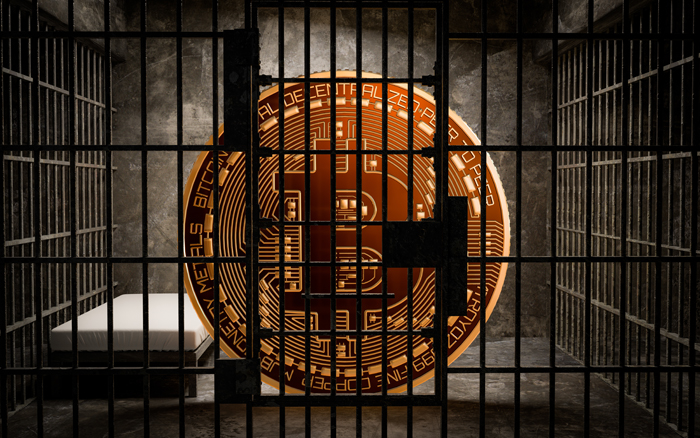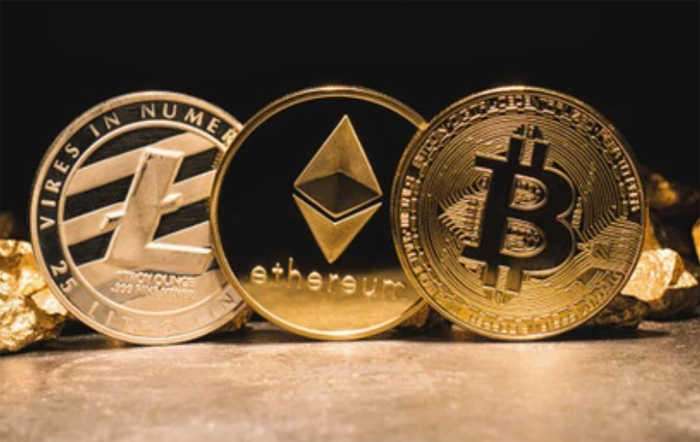Bitcoin shut down by any governments is a myth that only exists online as a discussion amongst the usual ignoramus, opinionated generalists. Bitcoin shut down is simply not possible, nor any movement exists to do it. May be tighter regulations could later be a factor, but Bitcoin is here to stay, keep going and do what it was designed to do.
This article focuses of the technical reason why a Bitcoin shut down is impossible do to its impenetrable blockchain technology. No hacker of government has or can assemble the technical ability to do it, as you about to understand why.
But also also on the financial, political, social and cultural level, the train has left the station.
Binance CEO Changpeng “CZ” Zhao speaking at the CoinDesk’s Consensus 2021 virtual conference said it best:
“Fighting off bitcoin and other cryptocurrencies now would be similar to refusing to accept Amazon’s internet business model when the e-commerce giant first started in the early 1990s.?
“I don’t think anyone can shut it down now, given that this technology, this concept, is in 500 million people’s heads.” “You can’t erase that.”
The technical reason why bitcoin was never hacked and probably never will be is complex. But here is the simple version. Many attempts have been made over the last 12 years by hackers and computer scientists form many countries. All 100% unsuccessful. Bitcoin is the most secure network in the world.
To understand why bitcoin can’t be shut down, you need to understand how it runs first.
Bitcoin, and cryptography in general, are defensive technologies that make the cost of defending property and information far lower than the cost of attacking them.
Bitcoin is a technology designed to replicate cash payments between two individuals online. A cash payment is final, doesn’t require third-party trust and it’s irreversible. Bitcoin peer-to-peer cash payment system has no single point of failure. It provide a form of money that is under the full command of its owner.
The possibility of a double transaction is practically impossible. Each transaction is verified by miners who competed for transaction verification and earn Bitcoin each time they produce a block. This verification has to be done in 10 minutes and must pass 51% consensus of all the nodes in the network.
Once verified, the transaction is then recorded in a ledger called the block. A block records some or all of the most recent Bitcoin transactions that have not yet entered any prior blocks. Each block is then “cloned and distributed” (chained) in an estimated 80,000 computers and assigned two unique cryptographic keys: the public key and the private key.
So Bitcoin is not a database or a copy machine that makes random strings of code and calls it money. It’s a secure distributed ledger network. It employs a POW (proof of work) mining system with a strong verification consensus that uses an enormous amount of power.
To produce new Bitcoins daily is take the same power used by 10 million homes. Not even 10 trillion laptops and 500 supercomputers combined could generate the computing power of the Bitcoin network.
Computers called ASIC are used. An S9 ASIC machine computing at 14Th/s (terahash per second) is the most powerful computer in the world. More powerful than a quantum computer. There are an estimated 4 million ASIC machines in datacenters around the world working 24/7/365 mining Bitcoin.
According to Fidelity 75% are now run through solar and hydro generated green power not fossil fuel as many believe.
Bitcoin is the most expensive money is the world to produce and its supply is finite. Satoshi Nakamoto’s motivation for Bitcoin was to create a “purely peer‐to‐peer form of electronic cash” whose supply cannot be altered by any other party.
Supply does not increase with demand. And by design, as demand increases, so does the mining computing difficulty, thus more power is required to produce Bitcoin. In economic terms, Bitcoin is “hard money.” Harder than gold, thus more valuable. Cost $1,2000 to produce 1 Oz of gold. Costs between $7,000-$11,000 USD to mine one bitcoin.
There will never be more than 21 million Bitcoins issued. This scarcity assures Bitcoin value and salability to increase across space and time. No one can change the Bitcoin production or the rigorous consensus system that transfers ownership.
A hacker or government cannot technically perform a Bitcoin shut down.
- A hacker would have to attempt reversing millions of transactions stored and chained in 80,000 computers. The electrical power to reverse transactions is much greater than the power to create the transactions.
- One would need a multibillion dollar datacenter to attempt such transactions reversal.
- The security of Bitcoin lies in the asymmetry between the cost of solving the proof‐of‐work necessary to commit a transaction to the ledger and the cost of verifying its validity. It costs ever‐increasing quantities of electricity and processing would make it unprofitable to reverse all the transactions in the Bitcoin blockchain.
- No single entity is relied upon for maintaining the ledger and no single individual can alter the record on it without the consent of a 51% majority of network members. What determines the validity of the transaction is not the word of a single authority, but the software running the individual nodes on the network. Ralph Merkle, inventor of the Merkle tree data structure, which is utilized by Bitcoin to record transactions, had a remarkable way of describing Bitcoin: Bitcoin is the first example of a new form of life. It lives and breathes on the internet. It lives because it can pay people to keep it alive. It lives because it performs a useful service that people will pay it to perform. It lives because anyone, anywhere, can run a copy of its code. It lives because all the running copies are constantly talking to each other.
- It can’t be changed. It can’t be argued with. It can’t be tampered with. It can’t be corrupted. It can’t be stopped. It can’t even be interrupted. If nuclear war destroyed half of our planet, it would continue to live, uncorrupted. It would continue to offer its services. It would continue to pay people to keep it alive. The only way to shut it down is to kill every server that hosts it. Which is hard, because thousand of servers host it, in a lot of countries, and a lot of people want to use it.
Can a government regulate Bitcoin out of business?
In 2014, Federal Reserve Chair Janet Yellen (today’s Treasury Secretary) told senators that the central bank can’t regulate Bitcoin because it operates outside the banking system.
“I think it’s important to understand that this is a payment innovation that’s taking place entirely outside the banking industry,” Yellen told Sen. Joe Manchin, D-W.Va. “The Federal Reserve simply does not have the authority to supervise or regulate Bitcoin in any way.”
In May 2021 Secretary Yellen stated:
“U.S. does not have an “adequate framework” to deal with all the different issues posed by cryptocurrencies, such as money laundering and illicit financing. According to her, there is no framework that’s “quite up to the task of putting in place a regulatory framework that we need” for cryptocurrencies.”
In January 2021 at her confirmation hearing last week, Treasury Secretary Janet Yellen said:
“Many cryptocurrencies are used “mainly for illicit financing, and I think we really need to examine ways in which we can curtail their use.” Although her written testimony says the government also needs to “look closely at how to encourage their use for legitimate activities.”
A 2018 Fidelity Study:
“Bitcoin is no more no less subject to illicit activities than any other currency or payment transaction system. Bitcoin anonymity is also incomplete Since user have to reveal their identity to receive services of goods.”
“Blockchain analytics have been successful in matching identity to the ledger itself. Blockchain analitis where successful at prosecuting Ross Ulbricht that was running the infamous Silk Road. And also prosecute a few FBI agent involved in the investigation but turned rogue and stole $200,000.”
Bloomberg Jan 2021:
“Many aspects of crypto are difficult to regulate. Governments cannot easily control the contents of blockchains, which are abstract ledgers. Furthermore, crypto markets are international and do not rely on the financial endorsement or facilities of the U.S.”
It doesn’t appear to be a technical or legal ability for Bitcoin shutdown, nor any definitive necessity or motivation.
Riccardo Ferrari
RiccardoFerrari.com




